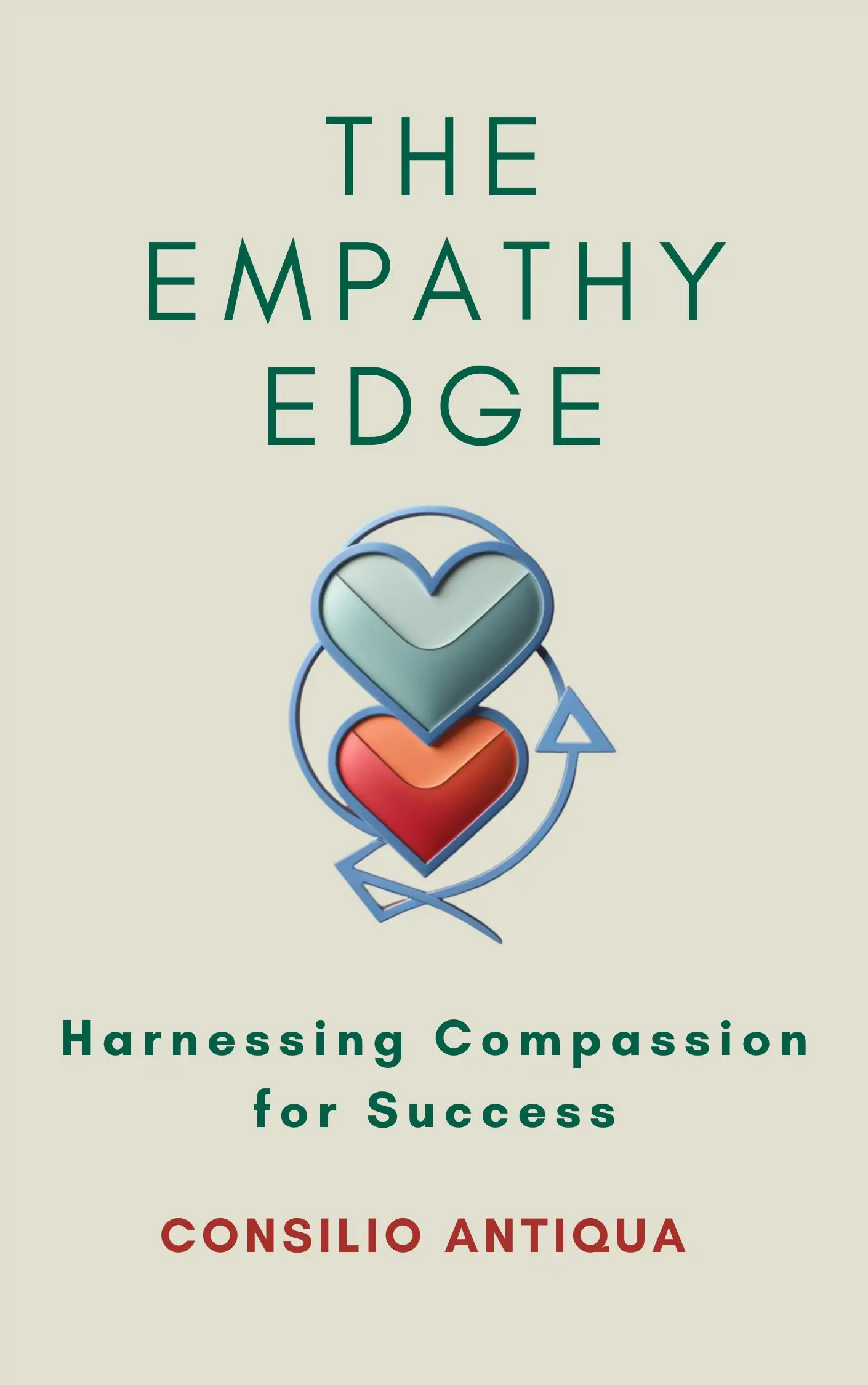
The Empathy Edge | Chapter 20: The Future of Empathy
Chapter 20: The Future of Empathy
Have you ever had a conversation where you felt like you were talking to a brick wall? Like, no matter how hard you tried to explain your point of view, the other person just wasn't getting it? It can be incredibly frustrating, right?
Well, imagine feeling that way all the time. That's what it's like for folks who feel unheard, misunderstood, or like they simply don't belong. And that's where empathy comes in – it's like a universal translator for the human heart.
Walking a Mile in Someone Else's Sneakers
Empathy isn't just about feeling sorry for someone. It's about climbing into their shoes, seeing the world through their eyes, and feeling what they feel. It's about recognizing that even when we disagree, we can still find common ground by acknowledging each other's experiences.
Think about a time when you felt truly understood. Maybe a friend listened patiently while you vented about a tough day, or a family member offered a comforting hug when you were feeling down. Remember how good that felt? That's the power of empathy – it creates a connection that goes beyond words.
From Greta to Your Next-Door Neighbor
Remember Greta Thunberg, the teenager who sparked a global movement for climate action? Her passion resonated with millions because she spoke from the heart. She wasn't just reciting facts and figures; she was sharing her genuine fear and concern for the future. And that's what empathy does – it makes us care.
But empathy isn't just for global issues. It's for everyday life, too. Think about your interactions with your neighbors, coworkers, or even the cashier at the grocery store. A little bit of empathy can go a long way in making those interactions more positive and meaningful.
Building Bridges, Not Walls
Imagine a world where leaders made decisions based not just on logic and data, but also on a deep understanding of how those decisions would affect real people. Imagine workplaces where colleagues truly listened to each other and collaborated effectively, even when they had different opinions. Imagine families where disagreements were resolved with compassion and understanding, rather than anger and resentment.
That's the kind of world we can build when we make empathy a priority. It's not always easy, but it's always worth the effort.
Flexing Your Empathy Muscles
So, how do we get better at this whole empathy thing? Well, it's like any other skill – it takes practice. Here are a few ideas to get you started:
- Strike up a conversation with someone outside your usual circle. Maybe it's a coworker you don't know well, or someone you see at the gym every week. Ask them about their day, their interests, or their experiences. Listen with genuine curiosity, and try to see the world from their perspective.
- Volunteer your time to a cause you care about. Helping others is a great way to build empathy. When you work alongside people who are facing challenges, you gain a deeper understanding of their struggles and their resilience.
- Read a book or watch a movie that tells a story from a different perspective. Fiction can be a powerful tool for expanding our empathy. When we immerse ourselves in the lives of characters who are different from us, we learn to see the world through their eyes.
The Ripple Effect of Kindness
Empathy isn't just good for the people around us; it's good for us, too. Studies have shown that people who practice empathy tend to be happier, healthier, and more successful in their relationships and careers.
Think of empathy as a ripple effect. When you show empathy to someone, it not only makes them feel better, but it also inspires them to show empathy to others. And so on, and so on. Pretty soon, you've got a whole wave of kindness and understanding spreading throughout your community.
Your Empathy Superpower
We all have the capacity for empathy. It's part of what makes us human. But like any superpower, it needs to be developed and used wisely. So, embrace your empathy superpower. Use it to connect with others, to build bridges, and to make the world a little bit brighter. You might be surprised at the difference you can make.
